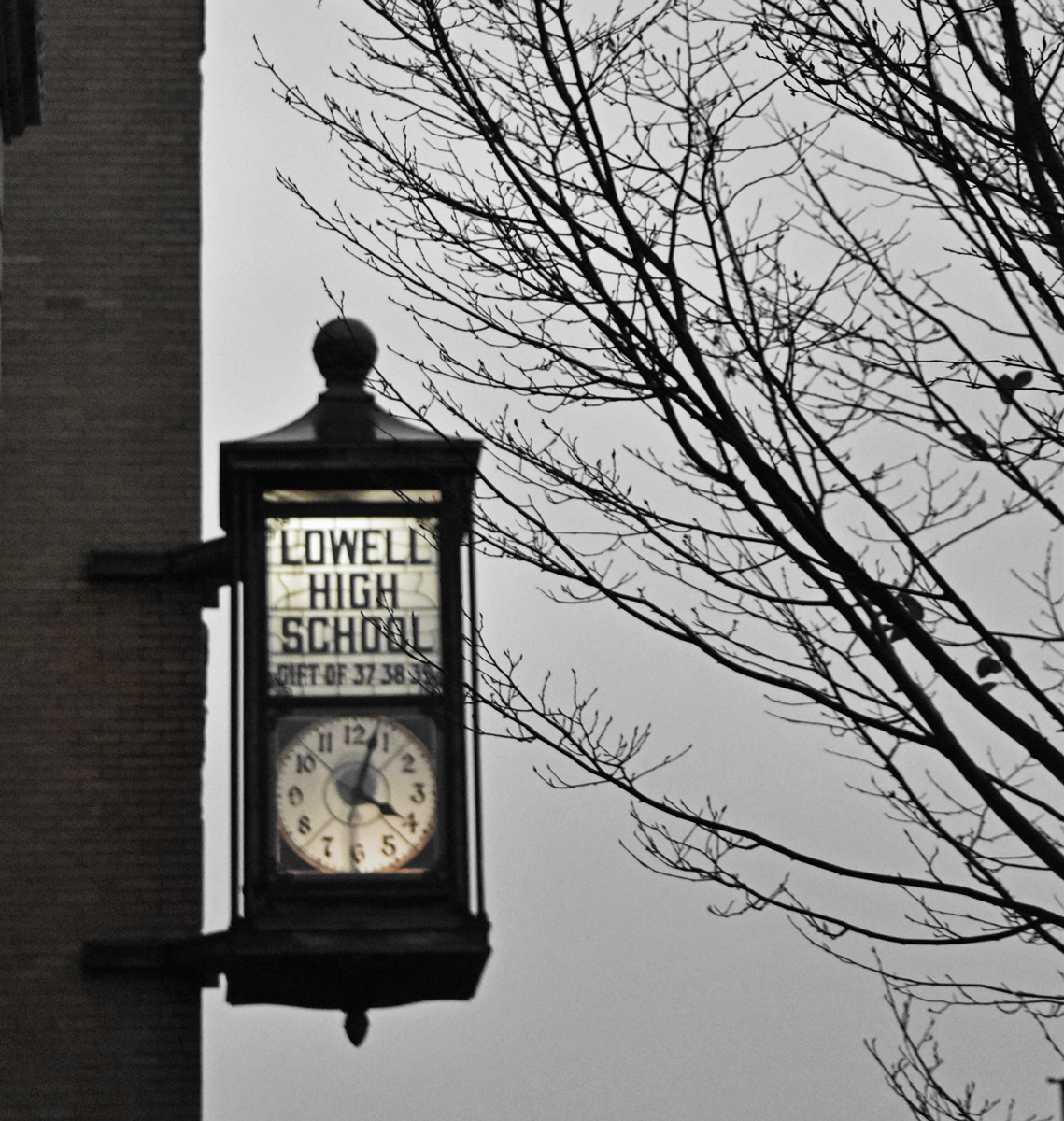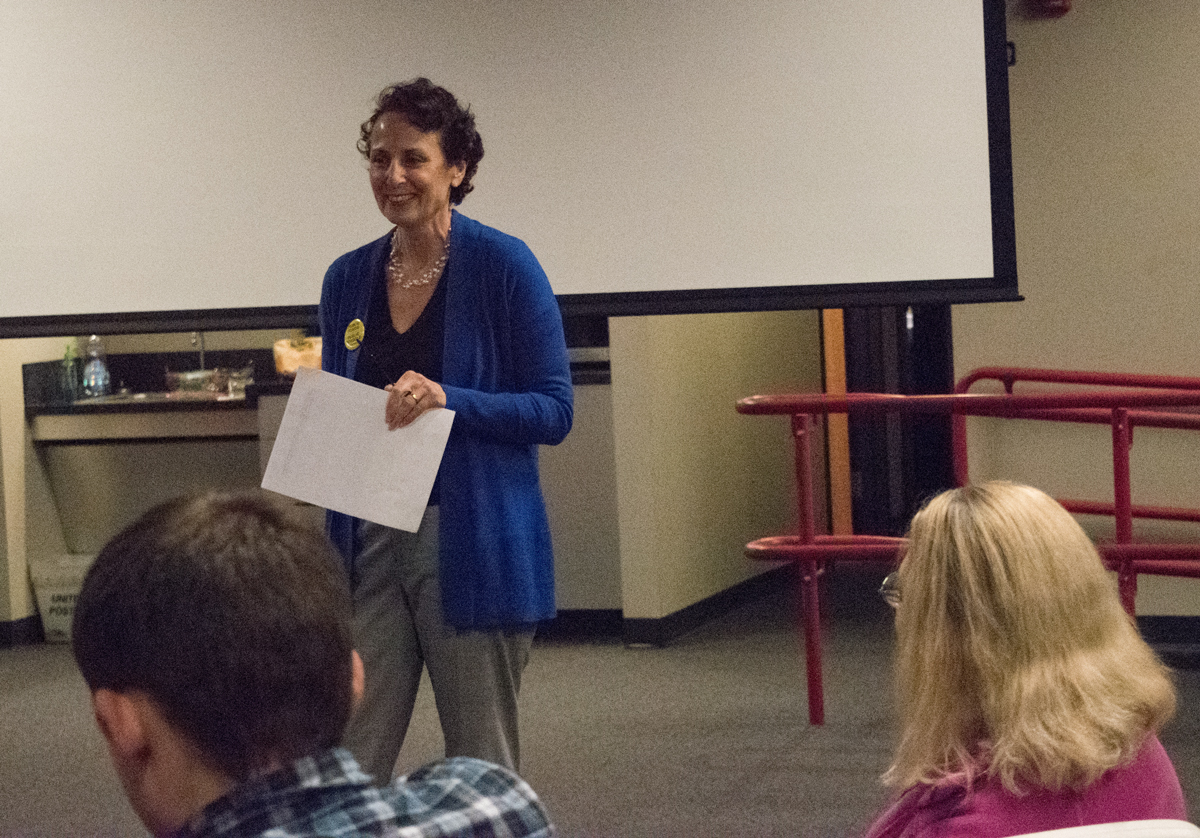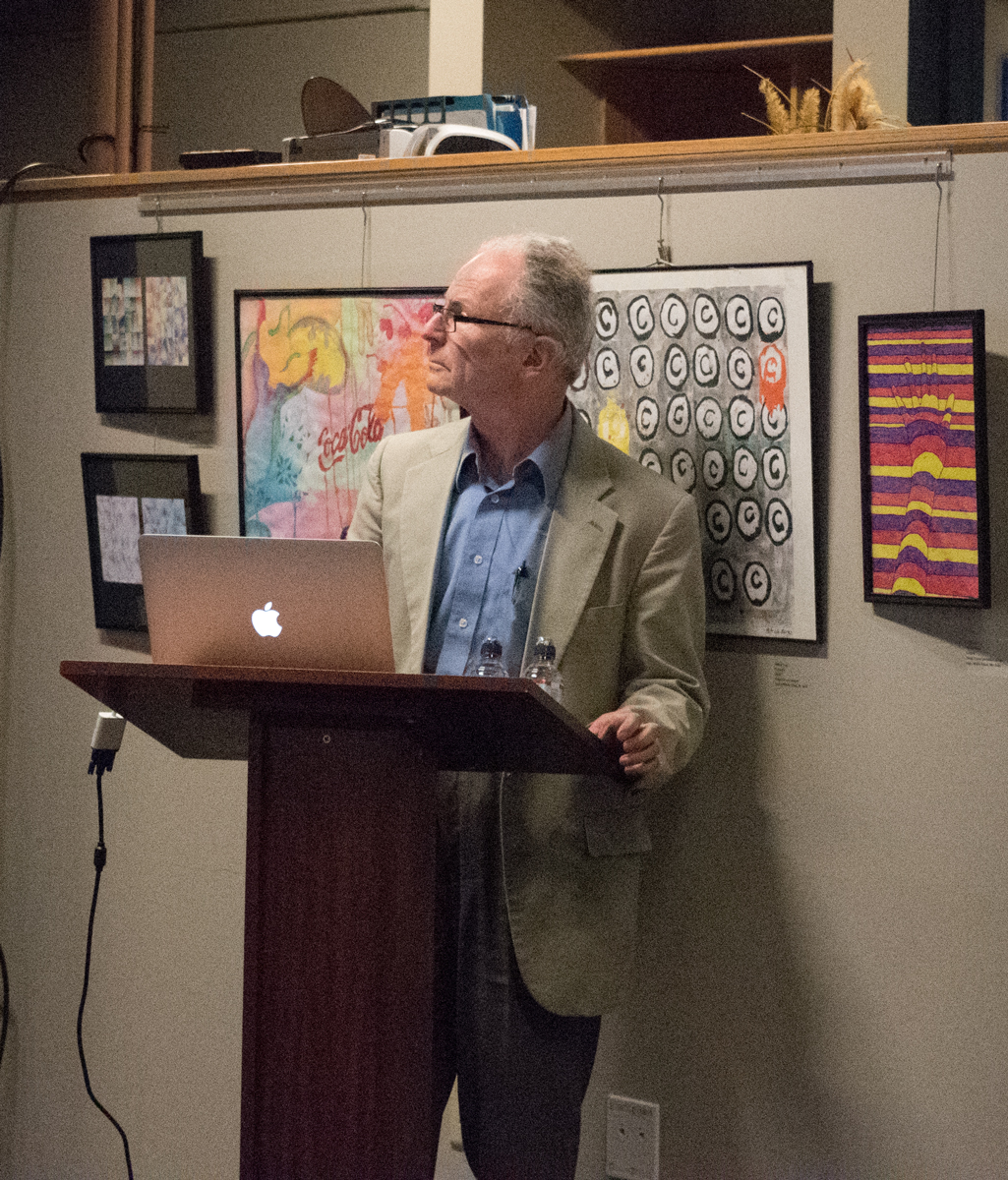School Committee Meeting, 04 May 2016Finance Subcommittee Meeting, 04 May 2016All members present This was a marathon session, especially for School Committee members present for both the regular meeting and finance subcommittee Q&A session, as well as the school department personnel. An executive session was sandwiched in between the two public meetings - three and a half hours. Meeting opened with recognition for the LHS Air Force Junior ROTC Drill Team (AFJROTC).Public ParticipationStephanie Sodre, Daley School teacher and parent of a preschool student, spoke in advocacy for Motion 2016/172, policy for placement of students within Lowell Schools for school personnel residing out of district.Paul Georges, President of United Teachers of Lowell (UTL), speaks on two motions to be presented: 2016/180 (career pathways for paraprofessionals) and 2016/186 (offering a contract to Dr. Khelfaoui). In the first instance, Mr. Georges reminds the school committee of the successful paraprofessional program which resulted in training and hiring new Special Education Teachers. This opportunity has been in existence for a number of years. He respectfully suggests that the new motion consider amending the language to include other school personnel who may wish to pursue licensure such as the custodians and/or cafeteria staff.Mr. Georges also spoke in support of offering the Superintendent a contract as opposed to the current Memorandum of Understanding (MOU). He reminds the school committee that the position of Superintendent was originally advertised as having a 3-year contract, but at the time of final interviews, the candidates were publicly asked if they would work “without a contract”. Mr. Georges reminds the committee that to do so was not only unfair, but ethically questionable and may, in the future, result in fewer candidates for advertised administrators such as superintendents.Motions:There were five motions presented; one, the motion to offer the Superintendent a 3-year contract, generated the longest discussion.
This was a marathon session, especially for School Committee members present for both the regular meeting and finance subcommittee Q&A session, as well as the school department personnel. An executive session was sandwiched in between the two public meetings - three and a half hours. Meeting opened with recognition for the LHS Air Force Junior ROTC Drill Team (AFJROTC).Public ParticipationStephanie Sodre, Daley School teacher and parent of a preschool student, spoke in advocacy for Motion 2016/172, policy for placement of students within Lowell Schools for school personnel residing out of district.Paul Georges, President of United Teachers of Lowell (UTL), speaks on two motions to be presented: 2016/180 (career pathways for paraprofessionals) and 2016/186 (offering a contract to Dr. Khelfaoui). In the first instance, Mr. Georges reminds the school committee of the successful paraprofessional program which resulted in training and hiring new Special Education Teachers. This opportunity has been in existence for a number of years. He respectfully suggests that the new motion consider amending the language to include other school personnel who may wish to pursue licensure such as the custodians and/or cafeteria staff.Mr. Georges also spoke in support of offering the Superintendent a contract as opposed to the current Memorandum of Understanding (MOU). He reminds the school committee that the position of Superintendent was originally advertised as having a 3-year contract, but at the time of final interviews, the candidates were publicly asked if they would work “without a contract”. Mr. Georges reminds the committee that to do so was not only unfair, but ethically questionable and may, in the future, result in fewer candidates for advertised administrators such as superintendents.Motions:There were five motions presented; one, the motion to offer the Superintendent a 3-year contract, generated the longest discussion.
- 2016/160 (Ms. Doherty) - request for information/report on the Lowell School’s civics curriculum.
- 2016/180 (Ms. Doherty) - career path for paraprofessions (See notes following)
- 2016/185 (Mr. Hoey) - policy mandating that Lowell residents are guaranteed interviews when applying for positions.
- 2016/186 (Mr. Hoey) - negotiation of a 3-year contract for the Superintendent
- 2016/187 (Ms. Martin) - report to full committee regarding evaluations (in aggregate) of LPS principals and staff using the Massachusetts Evaluation system protocols.
Ms. Doherty’s second motion (2016/180) re-emphasized and expanded on a valuable resource within the Lowell Schools - the paraprofessional staff (see Public Participation comment by Mr. Georges suggesting that this benefit should be extended to include other support staff). This motion asks the the administration continue to tap into that resource by developing a diverse teaching staff through a partnership with Middlesex Community College, University of Massachusetts Lowell and Lowell Public Schools. It expands on this idea by including potential for development from our high school students considering education as a career and Middlesex Community College students enrolled in one of MCC's education programs (Early Childhood Education, Early Childhood Education Transfer, and Elementary Education Transfer majors).Developing future educators by identifying students in high school who may be interested in a career in education, and encouraging those students in community college programs such as ones offered by Middlesex Community College, seems like a terrific idea for recruiting locally committed people to a career in education. While University of Massachusetts Lowell’s College of Education has offered Masters Degree level programming, Ms. Doherty suggested that a Bachelor’s education degree program is under consideration for the future. If so, that would complete the Initial Certification pathway for Lowell residents starting with Pre-K through Grade 12, to Associates degree (MCC) to Bachelor’s degree (UML). An additional enticement for potential education majors is that Middlesex Community will participate in the tuition-rebate program announced last week by Governor Baker. (link here)To clarify, however, our current paraprofessionals are highly qualified and must meet some exacting credentials already (2010 No Child Left Behind Highly Qualified). These include:
- a high school diploma or equivalent AND
- an Associates Degree OR 48 credit hours at an institute of higher learning OR successful completion of the Para-Pro or WorkKeys test
Ms. Doherty’s motion will need to include the above requirements mandated by NCLB; however, it is both interesting and creative and should help Lowell continue to locate and hire quality candidates for teaching.The motion receiving the longest discussion was Mr. Hoey’s suggestion that the Mayor enter into negotiation with Dr. Khelfaoui. Some clarification was offered that made the language and intent of the motion fit better with negotiation process, namely, to replace the wording so that the full School Committee, and not just the Mayor, would participate in negotiations (as is their obligation and duty) and to replace the specifics of number of years with a more flexible term, “multi-year”. By way of clarification, Dr. Khelfaoui repeated last night that contract or no contract really made no real impact on his superintendency - he was more interested in doing his job well.It seemed to come as a surprise to some Committee members that the Superintendent of Schools also has a regulated/mandated evaluation cycle (see the whole complicated Massachusetts Educator Evaluation on DESE website) just as teachers and principals do. The cycle is a two-year cycle. Section II of the Educator Evaluation Framework applies to Superintendents and can be found in this link which includes the rubric to be applied. Throughout year 1 of the cycle, the superintendent collects evidence toward his/her goals; those goals were developed at the start of the cycle in conjunction with the School Committee. At the end of year 1, a formative assessment of the Superintendent is made listing areas where goals have been met, are on the way to being met, or need additional work. This gives the superintendent (or educator, as teachers are subject to the same process) time to make mid-cycle corrections as needed.During year 2, the Superintendent continues to work toward goals and collect evidence of reaching them. At the end of year 2 a summative evaluation report of performance is made by the School Committee using the Educator Evaluation Framework rubric. Continuation of service or contracts are thought to be a natural fit at this point. Currently in year 1 of his evaluation cycle, Dr. Khelfaoui suggested that contract negotiations might be better served if tied to the Evaluation process mandated by the Commonwealth.Reports of the SuperintendentThere were five reports from the Superintendent’s office:
- 2016/172 Policy for Admission of Non-Resident School Employees (see packet). Referred to Policy Subcommittee. There was some discussion during the meeting about the legalities of requiring Special Education services to become out-of-pocket expenses paid by the employee should the sending district not pay (whether or not a sending district pays for student is tied to School Choice, currently proposed only for Grades 9-12).
- 2016/178 Response to 7/15/15 motion for Lincoln School Community Garden
- 2016/182 Community Service Day projects. Accepted as Report of Progress.
- 2016/183 STEM Update. Ongoing meetings have taken place in order to extend STEM programs through High School. Community resources are being included (such as Makerspace). Training for LHS personnel will take place over summer in anticipation of roll-out to incoming Freshmen in Fall 2016.
- 2016/174 Personnel Report. To date, 29 retirees, 11 resignations, 1 new hire (Mr. Frisch).
New Business2016/136, District School Choice: Dr. Khelfaoui is proposing School Choice be in effect for high school grades 9-12 only in 2016-17. 30 seats possibly available. Public Hearing on 5/18 at 6:30 pm . The date would indicate this discussion will be included in the May 18 regular School Committee meeting.2016/184, Permission to post Coordinator of Early Childhood EducationAfter approval of Convention/Conference Requests and Professional Personnel requests, the Committee went into Executive Session.Regular School Committee Meeting adjourned from Executive Session. Finance Subcommittee followed.Meeting packet for regular School Committee is here.
Finance Subcommittee Meeting (begins at approximately 9 pm)Members: Robert Gignac (chair), Jackie Doherty, Steve GendronThe School Committee had made several requests for additional budget information during the Superintendent’s Budget Presentation of April 25.
A copy of the proposed budget is found here.Jeannine Durkin (Asst. Superintendet Student Support Services) and Jennifer McCrystal (Director of Special Education) clarified and explained their thinking in generating the budget amount for both out-of-district student SpED placements and the consolidation plan for bringing more out-of-district placed Special Education students within Lowell Schools. The concept of the state’s Circuit Breaker accounting and contribution was explained. Ms. McCrystal also provided a detailed explanation of the need and request to fund additional Behavioral Analysts (1 currently serves 296 students; this is way beyond reasonable and the proposal is for a certified Behavioral Analyst or BCBA to be shared between an elementary-middle school.)Consideration of revising the Organizational Chart to reflect the responsibilities of an Assistant Business Manager as more complex than supervision of payroll personnel was made by Mr. Gignac. There were also questions about including Public Relations duties in the position of Assistant Human Resources Manager.The consolidation of the Bridge Program (alternative education for at-risk Middle School-aged students currently administered by Middlesex Community College) and the Alternative Education program at the Cardinal O’Connell has been modified in the revised budget to include a one-year transition. The slower roll-out is highly recommended so that a transition period for students, staff and families can be made.The impact of losing teachers at Lowell High (due to unreplaced retirements) was discussed relative to changes in class sizes.CBOs (Community Based Organizations such as CTI or YMCA) was explained as minimal costs incurred due to pass-through contributions.Handling the impact of the 2016-17 Grade 5 bubble was discussed. Once the budget is approved, there will be an effort to “recruit” families to fill two Grade 5 classrooms at the STEM school; Wang (2 additional classrooms) will be no problem to fill. John Descoteaux from Central Office offers that there will be minimal impact on bus costs. The rest of the bubble class will be absorbed (class sizes will range between 27 and 32).Meeting adjourned. Next budget hearing and discussion, with opportunity for Public Input, is scheduled for
MONDAY, May 9 at 7:15 pm, Rogers School Television Studio. Final Budget Meeting (adoption) is scheduled for
WEDNESDAY, May 11 at 7:15 pm, Rogers School Television StudioLink to Amelia Pak-Harvey's coverage is
here.
 Play - real, unstructured brain break time - is as important to a child's learning as academic time.So why are school leaders and decision-makers so reluctant to let go and allow more recess? I cringe whenever I hear a school leader lecture that there isn't enough time in a school day to increase play or unstructured time. Two reasons come to mind:
Play - real, unstructured brain break time - is as important to a child's learning as academic time.So why are school leaders and decision-makers so reluctant to let go and allow more recess? I cringe whenever I hear a school leader lecture that there isn't enough time in a school day to increase play or unstructured time. Two reasons come to mind:
 Sheryl Sandberg, the COO of Facebook, was the Commencement Speaker at U Cal Berkeley this past week. Ms. Sandberg also wrote the book Lean In which generated lots of controversy among women. (Full disclosure, I have not read it). Sheryl Sandberg has endured what is understandably the worst year of her life after her husband Dave Goldberg had a cardiac arrhythmia while working out on a treadmill about one year ago. The story of what came next is astoundingly honest, brutally frank, and incredibly inspirational. I'm providing a link to the
Sheryl Sandberg, the COO of Facebook, was the Commencement Speaker at U Cal Berkeley this past week. Ms. Sandberg also wrote the book Lean In which generated lots of controversy among women. (Full disclosure, I have not read it). Sheryl Sandberg has endured what is understandably the worst year of her life after her husband Dave Goldberg had a cardiac arrhythmia while working out on a treadmill about one year ago. The story of what came next is astoundingly honest, brutally frank, and incredibly inspirational. I'm providing a link to the  This was a marathon session, especially for School Committee members present for both the regular meeting and finance subcommittee Q&A session, as well as the school department personnel. An executive session was sandwiched in between the two public meetings - three and a half hours. Meeting opened with recognition for the LHS Air Force Junior ROTC Drill Team (AFJROTC).
This was a marathon session, especially for School Committee members present for both the regular meeting and finance subcommittee Q&A session, as well as the school department personnel. An executive session was sandwiched in between the two public meetings - three and a half hours. Meeting opened with recognition for the LHS Air Force Junior ROTC Drill Team (AFJROTC). Driven by an $18 million advertising campaign, those in favor of lifting the current cap on charter school seats have launched an all-out effort to increase the number of seats allocated to charter schools. This
Driven by an $18 million advertising campaign, those in favor of lifting the current cap on charter school seats have launched an all-out effort to increase the number of seats allocated to charter schools. This  information regarding how local funding is allocated to charter schools within a district and pointed out that our very own Commonwealth does not always fund (in fact almost never) the state budget adequately to provide the legislated reimbursement to municipal budgets. The trickle down effect of the under-funding is that traditional public school budgets and/or municipalities make up the gap in funds through their own budgets.Thinking about Lowell's budget this current year, about $17 million was paid to charter schools for Lowell students and approximately $3 million was reimbursed by the Commonwealth. That $3 million was about $1.3 million short of the state's responsibility. When there is a shortfall in the reimbursement funding, the local community must fill the gap between assessed amount and state reimbursement. In other words, a traditional public school program might need to be cut or a municipal service eliminated. Cities and towns often find themselves making difficult financial decisions because the Commonwealth does not live up to its promises.According to the DESE website, Lowell's 2016-17 assessment will be based on 1,494 students enrolled in charter schools (15,300 in traditional public schools) which represents 9.8% of the foundation enrollment. A District payment of $18,430,028 will be assessed with the mythical reimbursement of $3,708,525 from the Commonwealth IF charter reimbursements are fully funded in the state budget. And if not.... well Lowell, already tightening fiscal belts and consolidating programs, will need to find the difference somewhere in the City's budget.The Q&A session from the group continued discussion about the impact of the ballot initiative fiscally and educationally. Several raised concerns about increasing charter seats and how that might impact the proposed budget for next fiscal year. There was some surprise to learn that if a student is counted as enrolled in a charter school on October 1, but leaves to return to the city's public schools after that, the per pupil funding stays at the charter school until the next school year.There was interest in continuing informational discussions in the near future.If you, or someone you know would like to continue to be informed about this issue, we invite you to email the local group at lowellcps@gmail.com to be added to the email list. Additional information about Citizens for Public Schools and their advocacy efforts can be found on either their
information regarding how local funding is allocated to charter schools within a district and pointed out that our very own Commonwealth does not always fund (in fact almost never) the state budget adequately to provide the legislated reimbursement to municipal budgets. The trickle down effect of the under-funding is that traditional public school budgets and/or municipalities make up the gap in funds through their own budgets.Thinking about Lowell's budget this current year, about $17 million was paid to charter schools for Lowell students and approximately $3 million was reimbursed by the Commonwealth. That $3 million was about $1.3 million short of the state's responsibility. When there is a shortfall in the reimbursement funding, the local community must fill the gap between assessed amount and state reimbursement. In other words, a traditional public school program might need to be cut or a municipal service eliminated. Cities and towns often find themselves making difficult financial decisions because the Commonwealth does not live up to its promises.According to the DESE website, Lowell's 2016-17 assessment will be based on 1,494 students enrolled in charter schools (15,300 in traditional public schools) which represents 9.8% of the foundation enrollment. A District payment of $18,430,028 will be assessed with the mythical reimbursement of $3,708,525 from the Commonwealth IF charter reimbursements are fully funded in the state budget. And if not.... well Lowell, already tightening fiscal belts and consolidating programs, will need to find the difference somewhere in the City's budget.The Q&A session from the group continued discussion about the impact of the ballot initiative fiscally and educationally. Several raised concerns about increasing charter seats and how that might impact the proposed budget for next fiscal year. There was some surprise to learn that if a student is counted as enrolled in a charter school on October 1, but leaves to return to the city's public schools after that, the per pupil funding stays at the charter school until the next school year.There was interest in continuing informational discussions in the near future.If you, or someone you know would like to continue to be informed about this issue, we invite you to email the local group at lowellcps@gmail.com to be added to the email list. Additional information about Citizens for Public Schools and their advocacy efforts can be found on either their  5 present, Mr. Gendron absent.There have been many reports that this budget season is going to be a tight one. Although the City has committed to increasing their contribution by $1 million, the school department had recently floated a budget total with an additional $1 million deficit gap.Dr. Khelfaoui was on record as against making up the $1 million deficit through cuts to classroom teaching staff (
5 present, Mr. Gendron absent.There have been many reports that this budget season is going to be a tight one. Although the City has committed to increasing their contribution by $1 million, the school department had recently floated a budget total with an additional $1 million deficit gap.Dr. Khelfaoui was on record as against making up the $1 million deficit through cuts to classroom teaching staff ( About 10 years ago, I was introduced to the Responsive Classroom, a program that was highly supported in the school in which I worked. There are many
About 10 years ago, I was introduced to the Responsive Classroom, a program that was highly supported in the school in which I worked. There are many  All members present.
All members present. I would add, and if your job is to develop the curriculum or make an assessment of that young mind, you also need to know how the brain works.The brain science, based on the work of Dr. Wesson, tells us that a child's sustained attention can be predicted fairly accurately.
I would add, and if your job is to develop the curriculum or make an assessment of that young mind, you also need to know how the brain works.The brain science, based on the work of Dr. Wesson, tells us that a child's sustained attention can be predicted fairly accurately.
 So, what would you say an unexpected by-product of ed reform might be? With loss of autonomy in what to teach when, emphasis on high-stakes standardized testing and little control over just about anything else in the educational day, teachers are leaving some districts for transfers to more affluent schools and for other careers.I mention this because it is challenging to teach in a gateway - or as the Pioneer Institute referred to it last week "middle" - city. And because the Lowell Schools are making an effort to diversify faculty and staff.
So, what would you say an unexpected by-product of ed reform might be? With loss of autonomy in what to teach when, emphasis on high-stakes standardized testing and little control over just about anything else in the educational day, teachers are leaving some districts for transfers to more affluent schools and for other careers.I mention this because it is challenging to teach in a gateway - or as the Pioneer Institute referred to it last week "middle" - city. And because the Lowell Schools are making an effort to diversify faculty and staff. As a writer and, as a teacher, I value collaboration with peers. I know that my writing is made more clear, more interesting, and more precise when I rely on a trusted "critical friend" to offer constructive feedback. And so, when the Commonwealth's writing standards included peer revising as well as adult conferring, the inclusion of critical friends in the Writing Process made sense. Beginning in Grade 2, Writing Standard 5 includes this important progression of peer revision and peer editing. [Refer to the Writing Standards ("Code W") by grade level beginning on page 26 of the
As a writer and, as a teacher, I value collaboration with peers. I know that my writing is made more clear, more interesting, and more precise when I rely on a trusted "critical friend" to offer constructive feedback. And so, when the Commonwealth's writing standards included peer revising as well as adult conferring, the inclusion of critical friends in the Writing Process made sense. Beginning in Grade 2, Writing Standard 5 includes this important progression of peer revision and peer editing. [Refer to the Writing Standards ("Code W") by grade level beginning on page 26 of the  The Subcommittee on Policy, chaired by Mr. Hoey, met on January 27th. The report from the meeting suggested a change to the LPSD school purchasing policy so that LPSD purchasing aligns with the City of Lowell purchasing policy. Much discussion about the threshold of a requests (currently $5,000; proposed $35,000) that would trigger a Permission to Enter. While the full committee supports the editorial changes (see meeting packet), there is a larger discussion about retaining the $5,000 threshold for a variety of reasons, number one being to keep a handle on how the school budget is being spent. This discussion will continue at the next school committee meeting.Reports of the SuperintendentThree agenda items (2016/43, 2016/50 and 2016/44) addressed school year and School Committee calendars. The Calendar for the upcoming school year was approved after Ms. Martin received clarification that the Massachusetts State Primary date was indeed a Thursday (9/8) and not a Tuesday (9/6). The reason for the move to a Thursday election day is explained
The Subcommittee on Policy, chaired by Mr. Hoey, met on January 27th. The report from the meeting suggested a change to the LPSD school purchasing policy so that LPSD purchasing aligns with the City of Lowell purchasing policy. Much discussion about the threshold of a requests (currently $5,000; proposed $35,000) that would trigger a Permission to Enter. While the full committee supports the editorial changes (see meeting packet), there is a larger discussion about retaining the $5,000 threshold for a variety of reasons, number one being to keep a handle on how the school budget is being spent. This discussion will continue at the next school committee meeting.Reports of the SuperintendentThree agenda items (2016/43, 2016/50 and 2016/44) addressed school year and School Committee calendars. The Calendar for the upcoming school year was approved after Ms. Martin received clarification that the Massachusetts State Primary date was indeed a Thursday (9/8) and not a Tuesday (9/6). The reason for the move to a Thursday election day is explained  If you haven't yet looked at the PARCC sample tests available, you should (
If you haven't yet looked at the PARCC sample tests available, you should (